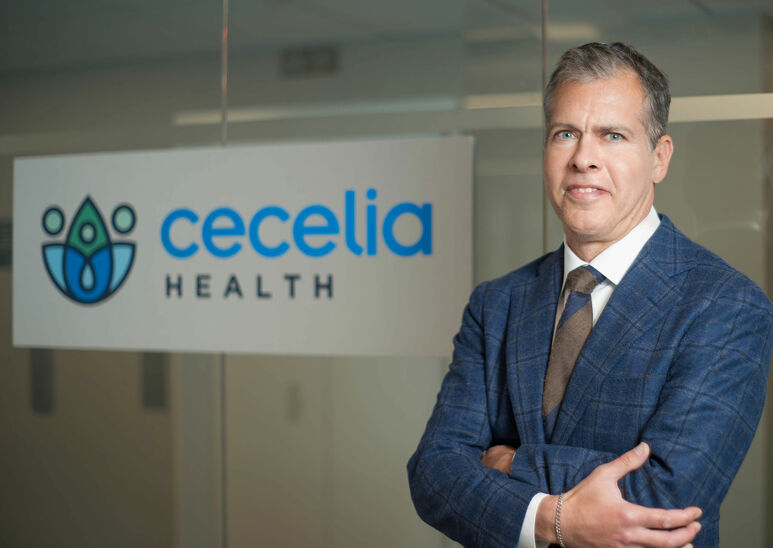Thought Leaders in Healthcare IT: David Weingard, CEO of Cecelia Health (Part 1)

David and I talk about diabetes management in this conversation.
Sramana Mitra: Let’s start by introducing our audience to yourself as well as to Cecelia Health.
David Weingard: I’m the Founder and CEO of Cecelia Health. We’re an organization that improves the health of people with diabetes and other chronic conditions by leveraging experts and using technology to scale their reach.
We’re engaging patients who are not necessarily raising their hands, but the ones that are costing the most money for the health economic system.
Sramana Mitra: Double-click down one more level and get into a bit more of the details of how you do what you do.
David Weingard: When I was diagnosed with diabetes, I was really overwhelmed. I was fortunate to find a diabetes educator who helped me understand, on a personal level, what I needed to know about the condition.
We engage these clinicians virtually through phone, video, email, or text with patients across the United States to motivate them, educate them, and help them to live a healthy life with diabetes, obesity, and cardiovascular disease.
Our clients are pharmaceutical and device companies who look to get their patients on medication supervised. Amazingly, 50% of the patients don’t start their medication or drop off in the first six months. We’re helping the patients. We’re helping our business clients.
Our other group of clients are health plans where they have patients who have diabetes or obesity. We’re able to scale through technology. We engage with patients that cost the most money. We reach out to them. We build trust. We educate them.
Sramana Mitra: What percentage of the diabetic population is being managed by technology such as yours?
David Weingard: There are 30 million diabetics in the US. It’s an epidemic. We’re trending to have one in three people have diabetes by 2030 according to the CDC. Just to be clear, there are two types of diabetes.
There’s type one diabetes which is also called juvenile diabetes in which the body does not create insulin anymore. The person must take an injection or use an insulin pump to live. The body just does not create the insulin. That’s about two million of the 30 million.
The majority of the people who have diabetes are what’s called type two diabetics. They have a lack of regulation in their body with insulin. That’s what you see the most in the press nowadays. You can manage type two diabetes in most cases with behavior change, nutrition, and exercise. You may need medication. If you do, it’s typically a progressive disease.
We need to help those people so that they don’t suffer the consequences of poorly-controlled diabetes, which has a high-risk of cardiovascular disease or blindness. The consequences are quite big. That’s the picture of the landscape. To get specific to your question, the issue is that most people do not proactively take care of their diabetes. It’s a job no one wants.
The number of people who will use pure technology for guidance is just a very small percentage. That’s why we are offering something really great and complementary. We use technology to scale the human touch. We want to be able to build trust with people in a very scalable way.
Sramana Mitra: Let’s talk about the two categories separately – type one and type two. Do you work with both of them?
David Weingard: Yes, we do.
Sramana Mitra: In type one, what kinds of things do you enable patients to do?
David Weingard: We engage with the patients and their caregivers to understand where they’re stuck. How is the diabetes going? What’s the biggest challenge? Are they taking the medication as prescribed by their provider? Do they understand the complexity of carbohydrate count?
We’re able to give that very personalized level of guidance to them and give them the support. 50% of people with diabetes also suffer from depression. It’s a 24/7 condition. It doesn’t go away. It’s overwhelming.
There’s the education part. There’s the support. When the parents are involved with children, there’s a lot of interactive dynamics between them. We support them as well.
This segment is part 1 in the series : Thought Leaders in Healthcare IT: David Weingard, CEO of Cecelia Health
1 2
Featured Videos
Can 1M/1M Help Me Raise Money?
How Does 1M/1M Democratize Entrepreneurship Education?
How Does 1M/1M Democratize Management Consulting?
When Is The Right Time To Join 1M/1M?
Can 1M/1M Help Me With Business Development?
Can 1M/1M Help Me With Market Sizing?
Can 1M/1M Help Me Validate My Product?
Will I Have Private 1-on-1 Sessions In 1M/1M?
How Does 1M/1M Help Entrepreneurs Connect With Silicon Valley?
Mentoring or Consulting?
Why Does 1M/1M Charge $1000 a Year?
Why Does 1M/1M Partner With Local Organizations?
Why Don\’t Mentoring Networks Work?
Why Is It Important To Study With 1M/1M Now?
Dan Stewart Story
Vikrant Mathur Story
